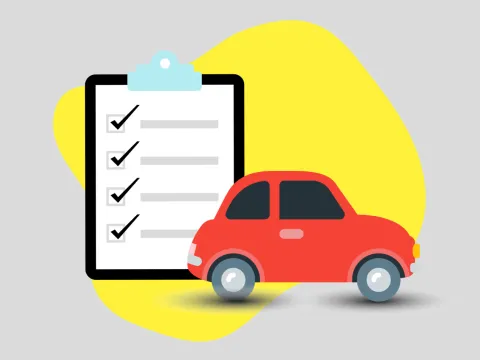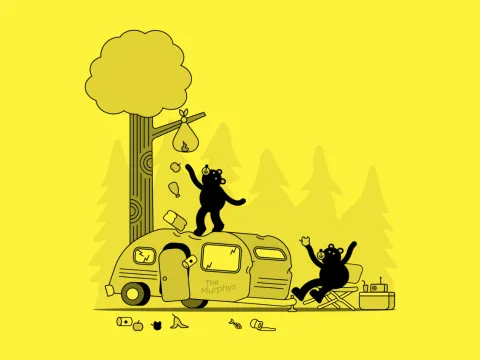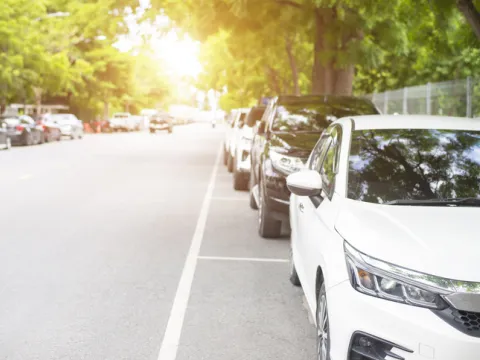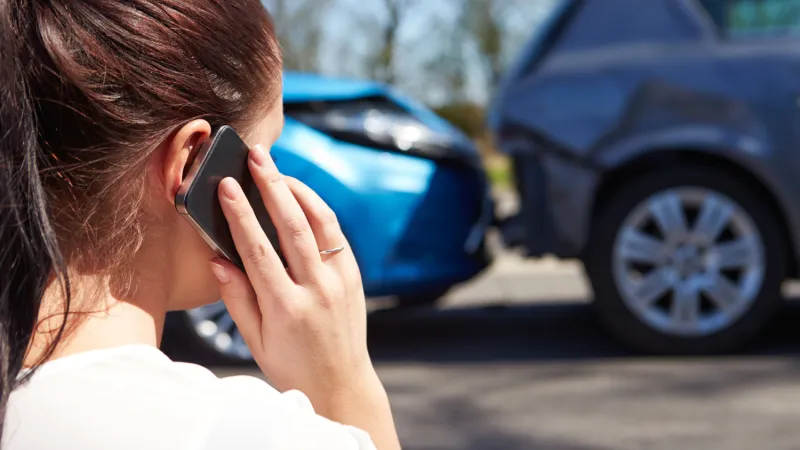
Car Insurance 101: 10 Industry Terms You Need to Know
Summary
Reading Time
6 min
Sitting in the broker’s office trying to decide which coverages match your needs and your ride can be a challenge when you don’t understand insurance lingo or if you’re a new driver. Some things may be more worthwhile to you on a policy than others, or a basic package policy might not have the right limits and coverages that you require. Whether you use your car for commercial purposes, have an antique vehicle or RV that only gets used for a few weeks of the year, or drive your car every single day to get to and from work, there are just some insurance terms that you need to know to be protected on and off the road. We’ll break them down the delightfully simple way:
Depreciation
After a certain amount of time, an item goes down in value and cost, and that includes cars, motorcycles, snowmobiles, trailers, ATVs—the whole lot. Depreciation can be determined based on wear and tear, market value, use, or a variety of other factors.
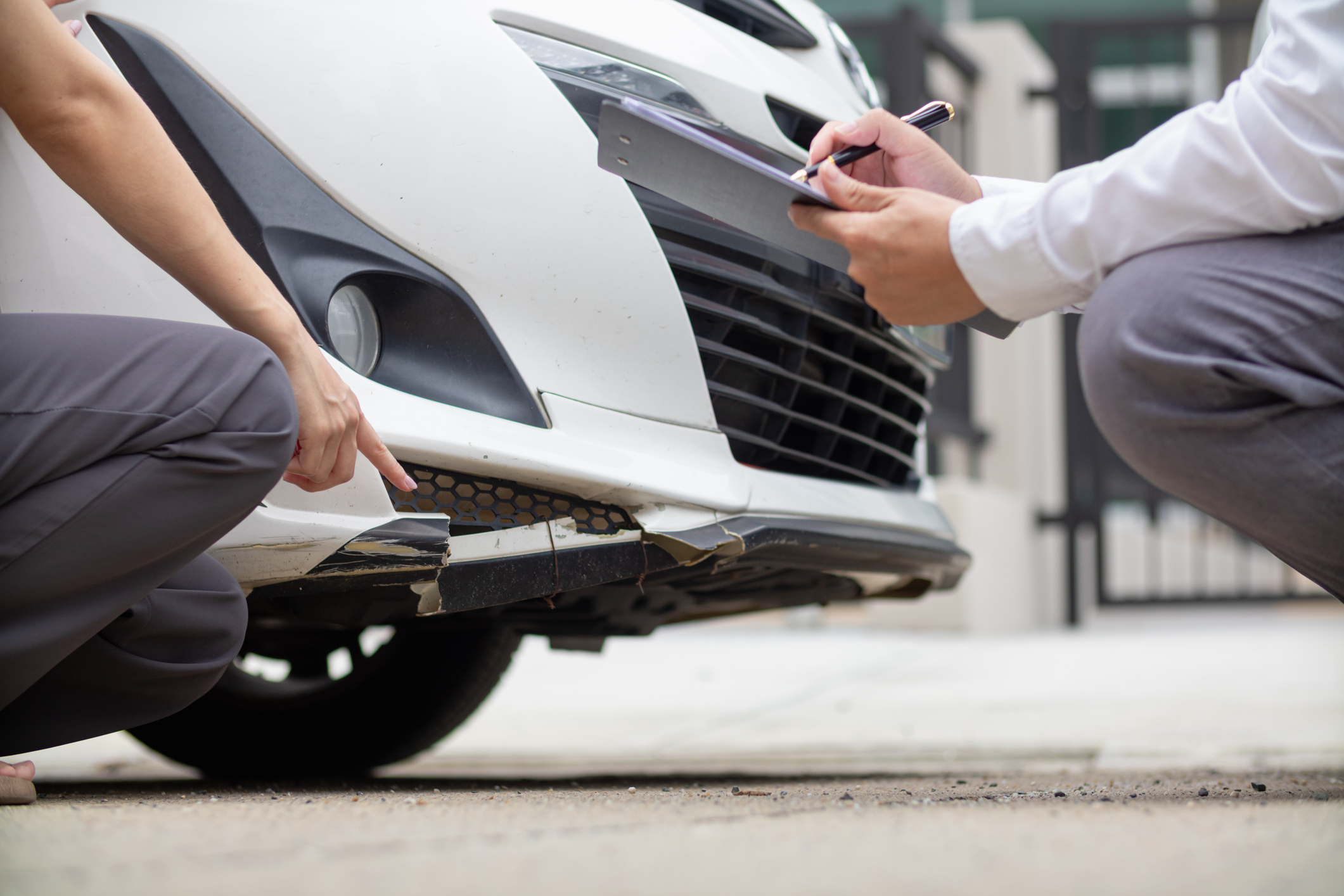
Actual Cash Value (ACV)
In the case of your car being stolen or damaged, the actual cash value will determine how much you will be compensated for the loss. First, the depreciation amount of your vehicle will be figured out, and then the amount that’s left after deducting the depreciation total is the actual cash value that you’ll receive.
Collision/Upset
Collision or upset is a type of coverage, and these two words often go hand-in-hand on a policy. Essentially, if your vehicle is involved in a collision with another object, animal, or roll over, this is the part of the insurance policy that covers the damage. Collision/upset insurance also covers hit-and-runs occurring to your car. Whether the situation is direct or accidental, having this on your policy will cover the costs of these unexpected situations on the road.
Comprehensive
Someone spray-painted your vehicle overnight? Golf ball-sized hail wrecked your car’s roof? Or even a tornado decides to take your new car for a spin? This is where comprehensive coverage comes in to save the day. To put it simply: When you have comprehensive auto insurance, things like vandalism, falling or flying objects, and other perils, simply don’t have to be a concern anymore.
Deductible
You would be surprised how often an insurance broker gets asked what a “deductible” is, and don’t worry if you don’t know it — we’ve all been there and we’re here to help! When you put in a claim, a deductible is the amount of money you have to pay out of pocket as the policyholder before the insurance company covers the costs. You can choose to have a high deductible in exchange for lower monthly or annual premium, or you can choose to have a low deductible in exchange for higher monthly or annual premium.

Deductible Buy-Down
Now that you know what a deductible is, let’s get into the nitty-gritty details and discuss a deductible buy-down. If your vehicle has been in an accident, depending on the scale of things, it can be very costly. Some people may choose to have a deductible buy-down option on their policy as an addition to their regular plan, which means they can lower the cost of their deductible when a claim is made by having a higher premium. So, by having this extension on your policy, you can lower the out-of-pocket expenses that are needed in the moment when a claim happens, especially if your deductible is higher than the average. To explore deductible buy-down options and have this added to your current policy, find a Sandbox broker for auto insurance near you.
Family Protection
Family Protection is an included limit with your Sandbox personal auto insurance coverage that protects you and your family members in the event that you are injured in a collision with an uninsured or underinsured motorist. Why would this be beneficial to you as a driver to know about? Well, if you drive in the United States often, states have different laws regarding minimum coverage for drivers. When the laws of coverage and liability are lowered, there may be an enhanced number of drivers on the road commuting with bare-minimum coverage legally allowed in their area. If you were to get in a collision with another driver with minimal liability and coverage (or none at all) and someone gets injured… things can get complicated. Being able to recognize if your policy includes family protection is essential, especially when road tripping to other locations.

Lay-up Coverage
An auto insurance policy from Sandbox Mutual Insurance means your customers get delightfully simple insurance for less, and that includes lay-up coverage, too. In Saskatchewan, it’s automatically included in an auto insurance policy, and in Manitoba, it’s located on the declarations page. If you own an RV or classic car, this coverage may be especially pertinent to your needs. This easy, simple coverage is for when a vehicle gets put into storage for extended periods. The coverage options you have on your policy continue while it’s unlicensed, in case something were to happen to it while it’s in hibernation mode.
Loss of Use
If your vehicle is damaged or stolen and it’s an insured loss, we will help keep you on the road by paying the cost to rent a vehicle while yours is being repaired or replaced — and we call it, Loss of Use. Loss of Use is an optional coverage that you can add to your full coverage car insurance policy. Since it’s optional, not only do many drivers out there not have it on their policy, but they don’t know about it. If you have Loss of Use added to your policy with Sandbox, we will reimburse you for the costs of a rental or substitute automobile, taxicab, vehicle-for-hire, or public transportation, up to your limit as outlined in your policy until your car is repaired or a solution is made. With Loss of Use, if your car is damaged to a point where it cannot be driven or if it’s stolen entirely, we have your back!

Road Hazard Glass (RHG)
There’s nothing worse than getting a stone chip in your windshield, then it turns into a crack, and then next thing you know, it’s grown into your line of sight. It’s the biggest buzzkill on a road trip, we promise you. Once you get your windshield replaced or purchase a vehicle with no damage to the windshield, adding that Road Hazard Glass coverage to your car insurance policy might not be a bad idea. Many people assume it’s covered under their auto policies and are disappointed to find out that it’s an optional coverage that must be added on by visiting their insurance broker. What does it all entail? Road Hazard Glass pays for windshield damage, such as stone chips or cracks to keep your windshield looking new, fresh, and crystal clear.
In the sometimes complex world of insurance, understanding the terminology is key to ensuring you have the right coverage for you and your car. From Depreciation to Road Hazard Glass, each term plays a crucial role in safeguarding you on and off the road. At Sandbox Mutual Insurance, we streamline and simplify the process, offering delightfully simple coverage options for Auto Insurance. So, the next time you find yourself in the broker's office, facing the insurance jargon, remember: understanding these terms is not just a matter of choice but a necessity to drive with confidence and peace of mind.
Please note that the information in this article may not accurately reflect your insurance policy from Sandbox Mutual Insurance or another insurance company. Please refer to your policy or talk to your broker about your specific coverages.

FAQ'S
Why do I need to understand all these car insurance terms?
Knowing the basics—like deductibles, depreciation, and comprehensive—helps you choose coverage that actually fits your lifestyle (and your vehicle’s personality). Instead of guessing, you’ll understand what you’re paying for and what’s protected. Think of it as learning the language of your policy so nothing gets lost in translation at the broker’s office.
Do I really need optional coverages like Loss of Use or Road Hazard Glass?
Optional doesn’t mean unnecessary—it just depends on your needs. Loss of Use helps keep you mobile if your car is in the shop after a covered claim, while Road Hazard Glass saves your wallet from surprise windshield chips and cracks. If you rely on your vehicle daily or hit gravel roads often, these extra protections can be a game-changer.
What’s the difference between collision, comprehensive, and ACV?
Collision covers you when your car hits something (or something hits you). Comprehensive handles the “everything else” category—like hail, theft, or that stray shopping cart with bad intentions. And ACV, or Actual Cash Value, determines what your car is worth at claim time after factoring in depreciation. Together, they help paint the full picture of how your ride is protected.

